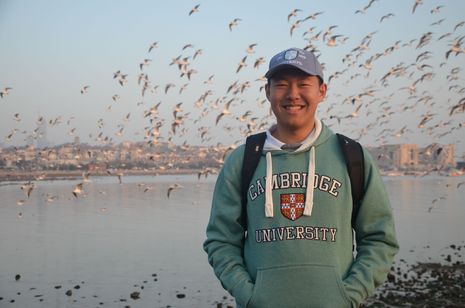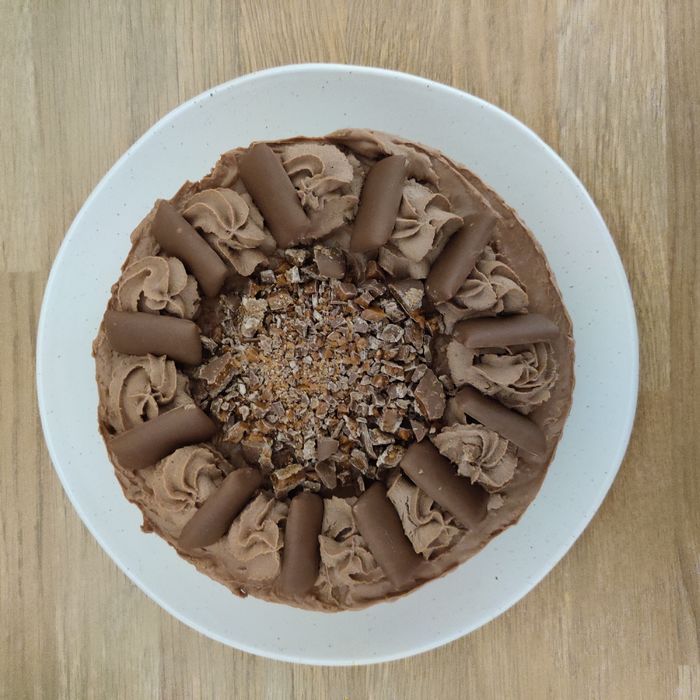The Editing Lifestyle of a Lifestyle Editor
Whilst studying remotely from Australia, David Quan explores how he adapted to his role as Lifestyle Editor during a very unusual Michaelmas.

Breathing the hot and dry heat under the scorching ‘Straya’ sun, just 10 000 miles away from the Varsity office, I find myself, perhaps both physically and metaphorically beyond my comfort zone, serving as one of the three Editors for the Lifestyle Section. From the initial ironies, confusions, and adjustments, to the ensuing collaboration, learning, and interactions, taking on this responsibility as a fresher in the land down under has been one tremendous blessing. As this three-month-long journey soon concludes, I can’t help but contemplate both the personal moments of embarrassments and gratitude, and also the collective sense of accomplishment and satisfaction. I hope that these reflections and memories not only provide an insight into the otherwise ambiguous editing process, but also, most importantly, encourage more people – including hesitant yet curious freshers – to also apply to become a Lifestyle Editor!
The Indecision: To apply or not to apply?
“...each Facebook message, Zoom call, Slack comment, Teams notification, and email incrementally informed me of the traditions, terminologies, and traits that define Varsity. ”
Choosing extracurricular commitments can be complicated when there are so many activities available- no matter which society you end up choosing, there's always that familiar, horrible feeling that you might be missing out on something better. On the one hand, my motivation to join Varsity was inspired by a curiosity and desire to learn from different people and to get involved with the Cambridge community. Applying was an obvious decision! On the other hand, though, I doubted my qualifications. This worry was only amplified when the application form demanded lengthy ‘critiques’ of the respective Varsity sections and individual articles. I wondered: what is required of a critique? I was very discouraged as I lacked an understanding of even the basic conventions of the newspaper, having never been involved with its previous editions. However, I was lucky that the Editor-In-Chief Rich Bartlett (who also happens to be an Aussie) took the time to selflessly guide me through the editing process. His encouragement and kindness was the tipping point for me to apply.
The Passive Start: Learning and Doubts
Eventually securing the role was exciting yet daunting; upon reflection, my passive start, for both valid and ‘my-fault’ reasons, was disappointing but memorable.
I remember finding the extraordinary folder of documents, handbooks, and guides to be both informative and overwhelming. Despite experiencing moments of paralysis – not quite knowing how to effectively digest and apply the hundreds of pages of information, whilst simultaneously packing for the then-exciting, now-cancelled overseas move to Cambridge – I marvelled at the foundations and structures that have been established by the previous student contributors.
Moreover, the Senior Editors’ expertise, clarity, and vision demonstrated in the Zoom welcome meetings were inspiring and impressive. They actively shared their experiences either writing, editing, or working for Varsity in previous terms – in contrast, I had not yet even gained access to my Cambridge email and account logins! Surely, I reasoned, it would be most appropriate for a fresher like me to just listen and learn. That was, of course, not in itself a decision to regret: each Facebook message, Zoom call, Slack comment, Teams notification, and email incrementally informed me of the traditions, terminologies, and traits that define Varsity.
The problem, however, was that only passively absorbing information without having the courage to brainstorm and propose ideas can undermine the effectiveness of what is necessary for the role. For example, my first couple of emails to writers requesting vital changes featured various disclaimers that, ironically and practically, invalidated my highlighted edits and comments. While I was confident in my stylistic and grammatical suggestions, the writers’ works were immensely impressive, so I worried about giving the false impression of discrediting their efforts. Why would a talented first-class English finalist who is writing her 30th article for Varsity accept detailed feedback from a fresher, just because he holds an ‘Editor’ title?
Gaining Confidence: Appreciating the Interactions
“...what matters most is not about being right or wrong or better; instead, the ultimate measure of an Editor concerns the courage to appreciate an active dialogue.”
Eventually, I came to embrace the role and its freedom. From communicating ideas on Slack and Teams, vetting columnist and staff writer applications, and promoting our innovative AskVulture initiative, to conversing with writers, searching for accessible illustrations, and posting and designing weekly commissions for the Facebook groups, my engagement blossomed. Finally, I felt like a somewhat productive member who was not burdening or slowing down the team!
What changed was more my attitude, as opposed to any rapid transformation in ability. I realised that what matters most is not about being right or wrong or better; instead, the ultimate measure of an Editor concerns the courage to appreciate an active dialogue. With this mindset, I become more encouraged to suggest thoughts even to those who I would consider far better than me as writers and communicators; raising feedback and challenging choices does not invalidate the writers’ creativity, but actually enables them an opportunity to argue and reconsider their presentation. Many writers even expressed their appreciation. This mutual open-mindedness for one another’s perspectives in the polishing process towards publishing has been one of Varsity’s most enjoyable and enriching features. I am so thankful for the talented writers, who anyone would no doubt enjoy interacting with in an editing capacity in the future!
Virtual Teamwork: Acknowledging the Team
The only genuine disappointment this term is not being able to meet and work with the Varsity team in person, which, dare I say, truly sucked! However, working virtually did encourage flexibility. When I learnt that I will be studying remotely just a few days before term, the other members did not just give up or laugh at the irony of a Lifestyle Editor not even living the Cambridge lifestyle. Instead, they offered support, committing themselves to adapt to the circumstances. When glitches in the uploading processes puzzled me, Vulture Editor Georgina Buckle almost always responded instantaneously to resolve the problem, even during odd hours. When one of us had a hectic week with multiple essay deadlines, or missed out on certain instructions or changes, we tried our best to step up for one another.
“When one of us had a hectic week with multiple essay deadlines, or missed out on certain instructions or changes, we tried our best to step up for one another.”
The Senior Lifestyle Editors Miranda and Tiffany, in my view, most successfully epitomised this selfless team-first attitude; I am very grateful for how they meticulously guided me throughout the term, and willingly accepted the additional responsibility of managing all the in-person behind-the-scenes layout planning for the physical print editions.
In retrospect, notwithstanding the 10.5 hours’ time zone difference, the journey has been fun. As hoped for, I learnt a lot! May these honest reflections of the peaks and troughs reveal a unique perspective. Hopefully, they shed light on how acting as a Lifestyle Editor for Varsity offers an enriching lifestyle in itself.
Seriously, when applications open, why would you not apply?
 Features / Should I stay or should I go? Cambridge students and alumni reflect on how their memories stay with them15 December 2025
Features / Should I stay or should I go? Cambridge students and alumni reflect on how their memories stay with them15 December 2025 News / Cambridge study finds students learn better with notes than AI13 December 2025
News / Cambridge study finds students learn better with notes than AI13 December 2025 News / Dons warn PM about Vet School closure16 December 2025
News / Dons warn PM about Vet School closure16 December 2025 News / News In Brief: Michaelmas marriages, monogamous mammals, and messaging manipulation15 December 2025
News / News In Brief: Michaelmas marriages, monogamous mammals, and messaging manipulation15 December 2025 Comment / The magic of an eight-week term15 December 2025
Comment / The magic of an eight-week term15 December 2025









